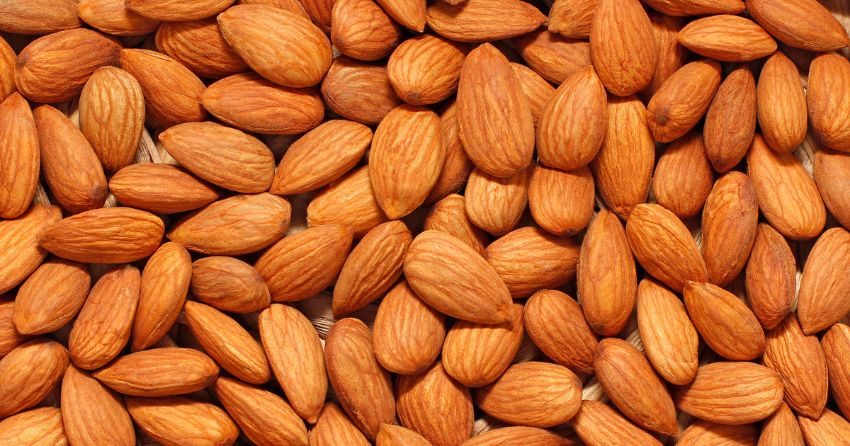Eating Almonds Reduces Caloric Intake and Improves Metabolic Hormones

- A snack of 30-50g of almonds helped people reduce caloric intake by 300 calories at the following meal.
- Almonds also helped people regulate hormones, including satiety and metabolic-related hormones.
This article was posted on EurekAlert.org:
Weight loss is never an easy nut to crack, but a handful of almonds could keep extra kilos at bay according to new research from the University of South Australia.
Examining how almonds can affect appetite, researchers found that a snack of 30-50 grams of almonds could help people cut back on the number of kilojoules they consume each day.
Published in the European Journal of Nutrition, the study found that people who consumed almonds – as opposed to an energy-equivalent carbohydrate snack - lowered their energy intake by 300 kilojoules (most of which came from junk food) at the subsequent meal.
Dr Sharayah Carter from UniSA’s Alliance for Research in Exercise, Nutrition and Activity (ARENA) says the research provides valuable insights for weight management.
“Rates of overweight and [obese] are a major public health concern and modulating appetite through better hormonal response may be key to promoting weight management,” Dr Carter says.
“Our research examined the hormones that regulate appetite, and how nuts – specifically almonds - might contribute to appetite control.”
“We found that people who ate almonds experienced changes in their appetite-regulating hormones, and that these may have contributed to reduced food intake (by 300kJ).”
The study found that people who ate almonds had 47 per cent lower C-peptide responses (which can improve insulin sensitivity); and higher levels of glucose-dependent insulinotropic polypeptide (18 per cent higher), glucagon (39 per cent higher), and pancreatic polypeptide responses (44 per cent higher). Glucagon sends satiety signals to the brain, while pancreatic polypeptide slows digestion which may reduce food intake, both encouraging weight loss.
“Almonds are high in protein, fibre, and unsaturated fatty acids, which may contribute to their satiating properties and help explain why fewer kilojoules were consumed.”
The findings of this study show that eating almonds produce small changes to people’s energy intake, Dr Carter says this may have clinical effects in the long term.
“Even small, positive lifestyle changes can have an impact over a longer period. When we’re making small, sustainable changes, we’re more likely to be improving our overall health in the long run,” Dr Carter says.
“Almonds are a fantastic healthy snack to incorporate into the daily diet. We are now excited to look at how almonds might affect appetite during a weight loss diet and how they might assist with weight management in the long term.”
JOURNAL
European Journal of Nutrition





